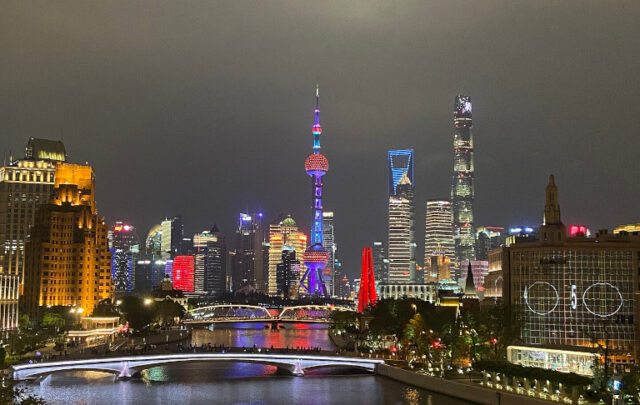LAGOS (Reuters) – Nigerian rebels fighting for sovereignty of the oil-producing Niger delta told oil companies in the world’s seventh largest exporter to shut production before they begin an “all-out war” on Oct. 1.
The Niger Delta People’s Volunteer Force, in a communique issued late on Monday after a meeting of its central command, also advised all foreigners to leave the delta, according to the group’s leader Mujahid Dokubo-Asari. The delta pumps all of Nigeria’s 2.3 million barrels per day output.
The communique accused Royal Dutch Shell Group, Nigeria’s largest oil producer, and Italy’s Agip, a unit of ENI, of “collaboration with the Nigerian state in acts of genocide against our people.”
Asari told Reuters after the meeting his group would not attack oil pipelines because it did not want to pollute the delta environment, but foreign oil workers would be targeted from Oct. 1.
The violence has so far had a minimal effect on oil supply, but companies fear a repeat of last year’s Ijaw rebellion which forced them briefly to shut 40 percent of production. Shell has already evacuated more than 200 staff from the fighting.
In New York, crude oil futures jumped 36 cents in electronic trading to the $50 a barrel level, the highest in the 21 years oil futures have traded on the exchange.
“Operation Locust Feast will commence on Oct. 1 marking the 44 years of dubious independence of the Nigerian state,” Asari quoted the communique from the group as saying.
The offensive is aimed at escalating the conflict, currently focused around the regional capital Port Harcourt, to the whole delta region, Asari said.
It will be sustained until the government agrees to negotiate self-determination for the Ijaw people, who form a majority in the delta, he added. The meeting nominated the Ijaw National Congress as the mediator for any talks with government.
HERO OR GANGSTER?
Many inhabitants of the vast area of mangrove swamps and creeks see Asari as a local hero, but the government describes him as a gangster fighting for control of smuggling routes used by oil thieves.
Though Ijaw militant groups are active in other parts of the delta, particularly around Warri, it remains to be seen if Asari can muster a strong following outside his native clan.
Asari said the Niger Delta People’s Volunteer Force would take no responsibility for any harm to foreign nationals.
“All foreign embassies should withdraw their citizens from the Niger delta until the resolution of the fundamental issues,” he said. “That means they have to close their facilities.”
Nigerian oil is produced by five multinational oil companies comprising Shell, ExxonMobil, Total, ChevronTexaco and Agip. The country is the fifth largest supplier to the United States.
“Anyone who assists the Nigerian state to make money in Ijawland (the delta) will be seen as a collaborator and an enemy and will be targeted,” Asari said.
Amnesty International said the conflict killed 500 people in three weeks to mid-September, while government figures are far below that. The deaths have been mostly from sporadic gun battles between the rebels, who travel in speedboats, and a new deployment of troops sent to crack down on them.
The army said it used helicopter gunships to attack a rebel base in mid-September. Asari has accused the troops of using chemical weapons in that attack, which the army denied.
A recent consultant report for Shell estimated that about 1,000 people die every year because of communal and political unrest in the delta, where the majority live in abject poverty despite the oil wealth under their soil.
Recent fighting has focused around Port Harcourt, particularly Asari’s native Kalabariland southwest of the city. But Asari said the group decided at the meeting to spread the conflict across all 43 Ijaw clans, which encompass the majority of Nigeria’s oilfields.
Asari said Monday’s meeting also established that membership of the loosely knit volunteer force now numbered over 200,000. His arsenal includes machine guns, assault rifles and rocket launchers, he added.





